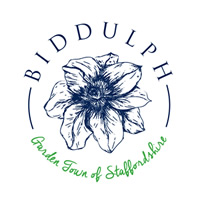What is a Town Councillor?
Town Councillors are champions of the community and give residents a voice on the decisions a Town Council makes. You can make a real difference in your community by becoming a Town Councillor.
A Town Councillor’s Role and Responsibilities include:
- Pro-actively developing strategies and plans for the area.
- Serving the community – helping to resolve problems.
- Representing the community by raising concerns.
- Collaboratively working with others.
- Decision making and reviewing decisions on which services and projects the Town Council should take forward.
- Engaging with residents, local groups and businesses about their needs.
Being a Town Councillor is an enjoyable way of contributing to your community and helping to make it a better place to live, work and visit.
Who can be a Town Councillor?
Any person over 18 who is a British citizen, or a citizen of the Commonwealth or European Union can be a Councillor if they are registered to vote in the area or have lived, worked or owned property there for at 12 months before an election.
You cannot stand for election if you work for the Council you want to be a Councillor for, or for another local authority in a political restricted post; are the subject of a bankruptcy restrictions order or interim order; have been sentenced to prison for 3 months or more (including suspended sentences) during the 5 years before the day of an election or have been convicted of a corrupt or illegal practice by an election court.
There are no special qualifications to being a Councillor, other than having a keen interest in your community and the Town and being available for Council meetings (which usually take place on Tuesday evenings). Skills gained through work, raising a family, caring for relatives, volunteering or being active in community or faith groups, etc are highly valuable.
What Makes a Good Town Councillor?
- Sound interest, knowledge and understanding of local matters.
- Enthusiasm, ability and willingness to represent the Council and their community.
- Excellent communication – including listening and interpersonal skills, facilitation, public speaking and the ability to consider alternative points of view and to negotiate, mediate and resolve conflict.
- Problem solving – ability to get to the bottom of an issue, analyse data and research to identify ways to resolve an issue.
- Team working – ability and willingness to work closely with other Councillors and Council Officers in meetings and on committees to maintain good working relationships.
- Organisational skills – ability to plan and manage own time, keep appointments and meet deadlines.
- Engagement – available to provide information and advice to local people and Council partners, such as voluntary groups and to attend Council run events.
The National Association of Local Councils publishes ‘The Good Councillor’s Guide’, here is a link to their website: www.nalc.gov.uk/publications#the-good-councillors-guide
The Democratic Process
Elections to Biddulph Town Council are run by Staffordshire Moorlands District Council (the elections authority).
Ordinary elections to be a Biddulph Town Councillor are held every 4 years, where all 22 seats on the Town Council are up for election. Candidates compete to gain the most votes from the electorate.
If a vacancy arises between ordinary elections, (for example due to a Councillor’s death or resignation), the vacancy is not automatically put up for election – 10 or more electors from the Town must request a by-election in a specified period for there to be one. If the vacancy occurs within the 6 months before an ordinary election no by-election is held.
If a by-election is not called, residents of the Town can ask to be considered for co-option onto the Council. The Full Council then meets to consider their requests and votes on who fills the vacant seat. The elected Councillor serves the remainder of the term and retires with the other Councillors at the next ordinary election.
Candidates don’t have to belong to or represent a political party. Councillors can be independent of political parties. To stand for a party, a candidate must have permission from the party to be put forward as their candidate.
Detailed information on how to stand for election is available from the Electoral Commission, here’s a link to their website: www.electoralcommission.org.uk.
How to Register to Vote
Voting is a crucial part of democracy. You need to be registered to vote in elections. If you’re not registered you can’t have your say. You can vote when you’re 18 or over. You only need to register once – ie not for each election, but you will need to re-register if you change your name or address. You need to register to vote every time you move home. It’s easiest to register online, via the Government’s website (it only takes about 5 minutes), here’s a link to their website: https://www.gov.uk/register-to-vote
The Electoral Register
The electoral register is the name and address of everyone registered to vote in public elections. It’s used by elections staff, political parties, etc. There are 2 versions – the full register, which includes all eligible electors who are registered to vote and the open (edited) register, which is an extract of the electoral register which can be bought by any person, company or organisation.
You can ask for your name and address to be removed from the open register by emailing electoral.services@staffsmoorlands.gov.uk, writing to Electoral Services, Staffordshire Moorlands District Council, Moorlands House, Stockwell Street, Leek Staffordshire ST13 6HQ or by phoning their customer services on 0345 605 3010.
An annual canvass begins in July each year, when each household receives an enquiry form asking them to update the details on the form, to ensure the details on the electoral register are accurate. A revised register is published every December.
Voting by Post or Proxy
If you’re unable to get to your polling station on the day of voting, you have the option to vote by post, or by proxy (getting someone you know and trust to vote on your behalf). You need to download an application form from Staffordshire Moorlands District Council, fill it in and return it to Electoral Services (as shown above).
Your Polling Station
You’ll receive your poll card, through the post, a few weeks before polling day. Your poll card will tell you the address of your polling station – where you can vote in person. Polling stations are open from 7am to 10pm. You have to go to your allocated polling station, you can’t go to a different one, for example, close to where you work.
Tell the polling clerk your name and address and they’ll give you the ballot paper(s). You’ll need to show photographic ID to vote in the polling station. To find out what ID you can use, or how to get an accepted form of ID details refer to the Electoral Commission website, here’s a link: https://www.electoralcommission.org.uk
Vote for your chosen candidate by putting an ‘x’ next to the name of the person you want to represent you. If you’re unsure what to do, ask the staff at the polling station, they’re there to help you. Put your ballot paper in the ballot box – to keep all the votes safe until they’re ready to be counted.
Election Results
After the election, the votes are counted for each candidate and the candidate with the most votes wins the seat.
The results of any election are posted to Biddulph Town Council’s website and to social media.

